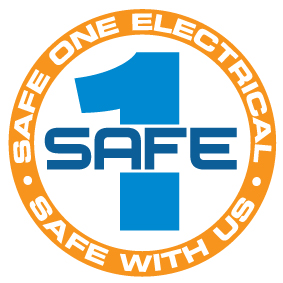Introduction of Essential Electrical Safety
Electrical safety is a critical concern for every homeowner. With the growing reliance on electrical devices and systems, understanding how to safely manage and maintain your electrical system is essential. Neglecting electrical safety can lead to hazardous situations, including electrical fires, shocks, and damage to your home. In this blog, we’ll discuss essential electrical safety tips to help you keep your home safe and prevent potential risks.
1. Regular Electrical Inspections
One of the most effective ways to ensure your home’s electrical system remains safe is by scheduling regular inspections with a licensed electrician. An electrician can identify potential issues such as faulty wiring, outdated circuit breakers, and overloaded circuits. Regular inspections help address minor problems before they escalate into serious safety hazards. Aim to have your electrical system inspected at least once every few years or when you notice any signs of trouble.
2. Avoid Overloading Circuits
Overloading circuits is a common cause of electrical fires. Every circuit in your home has a maximum capacity, and exceeding this limit can lead to overheating and potential fires. Avoid plugging too many devices into a single outlet or using extension cords excessively. If you frequently experience tripped circuit breakers or flickering lights, it may be a sign that your circuits are overloaded. Consult a professional to assess and upgrade your electrical system if needed.
3. Use Quality Electrical Products
Always choose high-quality electrical products, including outlets, switches, and extension cords. Poor-quality or damaged electrical products can increase the risk of electrical hazards. Look for products that meet safety standards and are certified by recognized testing organizations. For example, opt for outlets with built-in safety features such as tamper-resistant designs to protect children from electrical shocks.
4. Install Ground Fault Circuit Interrupters (GFCIs)
Ground Fault Circuit Interrupters (GFCIs) are essential for preventing electrical shocks in areas prone to moisture, such as kitchens, bathrooms, and outdoor spaces. GFCIs monitor the flow of electricity and quickly cut off power if they detect any imbalance or leakage. Installing GFCIs in these critical areas can significantly enhance safety and protect you from electrical accidents.
5. Maintain Electrical Appliances and Cords
Regular maintenance of electrical appliances and cords is crucial for preventing accidents. Check cords and plugs for signs of wear and tear, such as fraying or exposed wires. Avoid using damaged or frayed cords, as they can cause electrical shocks or fires. Keep appliances clean and follow manufacturer guidelines for proper use and maintenance. Additionally, ensure that appliances are unplugged when not in use to reduce the risk of electrical hazards.
6. Educate Your Family Members
Electrical safety is a shared responsibility. Educate your family members, especially children, about the importance of electrical safety. Teach them not to touch electrical outlets, play with cords, or overload outlets. Make sure everyone in the household knows how to react in case of an electrical emergency, such as using a fire extinguisher or shutting off the main power supply.
7. Use Surge Protectors
Surge protectors are essential for protecting your electronics and electrical devices from power surges and voltage spikes. Power surges can occur due to lightning strikes, faulty wiring, or other issues. Using surge protectors helps safeguard sensitive equipment such as computers, televisions, and appliances from potential damage. Ensure that the surge protectors you use are rated for the equipment you are protecting and have sufficient joule ratings.
8. Update Electrical Systems as Needed
As your home and its electrical needs evolve, updating your electrical systems may be necessary. If you’ve recently renovated your home or added new electrical appliances, consider having your electrical system reviewed and upgraded if needed. Older homes may also require updates to meet modern safety standards and handle increased electrical loads. Working with a licensed electrician can ensure that any upgrades are done safely and effectively.
9. Be Cautious with DIY Electrical Work
While some DIY projects can be a great way to save money, electrical work should generally be left to professionals. Incorrectly performed electrical repairs or installations can pose significant safety risks. If you’re experiencing electrical issues or need upgrades, always hire a licensed electrician to ensure that the work is done correctly and meets safety standards. Attempting DIY electrical work without proper knowledge can lead to dangerous situations and costly repairs.
10. Install Smoke and Carbon Monoxide Detectors
Smoke and carbon monoxide detectors are vital for detecting potential hazards early. Smoke detectors alert you to fires, while carbon monoxide detectors detect dangerous levels of this odorless, toxic gas. Ensure that detectors are installed in key areas of your home, such as bedrooms, hallways, and near heating systems. Regularly test and replace batteries to ensure that detectors remain functional and provide timely alerts.
Conclusion
Electrical safety is essential for protecting your home and loved ones from potential hazards. By following these essential electrical safety tips—such as scheduling regular inspections, avoiding circuit overloads, using quality products, and educating your family—you can create a safer environment and prevent electrical accidents. Stay proactive about electrical maintenance and work with licensed professionals to ensure that your home’s electrical system remains safe and reliable.

